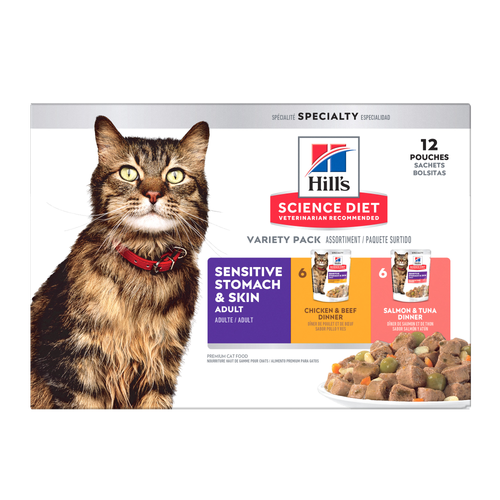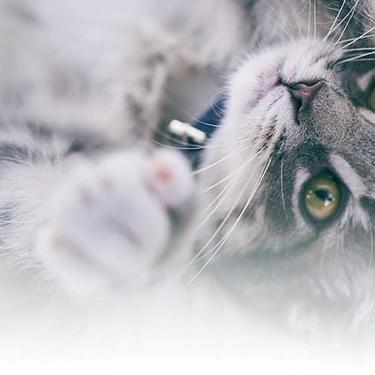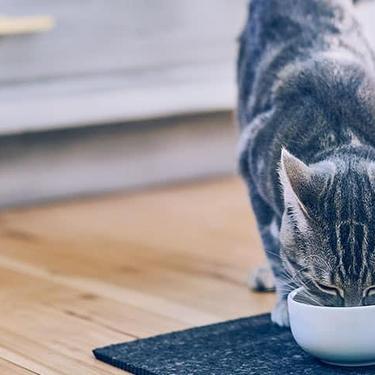
-
Find the right food for your petTake this quiz to see which food may be the best for your furry friend.Find the right food for your petTake this quiz to see which food may be the best for your furry friend.Health CategoryFeatured products
 Adult Large Breed Chicken & Barley Recipe Dog Food
Adult Large Breed Chicken & Barley Recipe Dog FoodSupports healthy joints, lean muscle, and beautiful coat for large breed dogs
Shop Now Hill's Science Diet Adult Healthy Mobility Large Breed Chicken Meal, Barley & Brown Rice Recipe Dog Food
Hill's Science Diet Adult Healthy Mobility Large Breed Chicken Meal, Barley & Brown Rice Recipe Dog FoodAdvanced nutrition shown to support joint health and improve mobility
Shop Now Adult Light Large Breed Chicken Meal & Barley Recipe Dog Food
Adult Light Large Breed Chicken Meal & Barley Recipe Dog FoodFewer calories for less active large breed dogs
Shop NowFeatured products Adult Oral Care Chicken & Brown Rice Recipe Cat Food
Adult Oral Care Chicken & Brown Rice Recipe Cat FoodClinically proven kibble technology to reduce plaque & tartar build-up
Shop Now Adult Perfect Digestion Chicken, Barley & Whole Oats Recipe Cat Food
Adult Perfect Digestion Chicken, Barley & Whole Oats Recipe Cat FoodHill's Science Diet's breakthrough nutrition supports ultimate digestive well-being & healthy microbiome
Shop Now Adult Sensitive Stomach & Skin Pouch Variety 12 Pack Cat Food, Chicken & Beef, Salmon & Tuna
Adult Sensitive Stomach & Skin Pouch Variety 12 Pack Cat Food, Chicken & Beef, Salmon & TunaCarefully made, gourmet daily nutrition. Tasty chunks with Salmon & Tuna in a decadent gravy. Supports digestive health, nourishes skin and promotes a lustrous fur.
Shop Now -
DogCat
- Cat Tips & Articles
-
Health Category
- Weight
- Skin & Food Sensitivities
- Urinary
- Digestive
- Kidney
- Dental
- Serious Illness
-
Life Stage
- Kitten Nutrition
- Adult Nutrition
Featured articles Adopting a Pet: What You Need to Know
Adopting a Pet: What You Need to KnowLearn the basics of adopting a pet, including where to begin and common questions you should ask yourself when deciding which kind of pet is best for you.
Read More Cat vs. Dog: Which Is the Best Pet for Me?
Cat vs. Dog: Which Is the Best Pet for Me?Learn about important differences between dogs and cats, such as cost & space considerations. These factors can help you decide which pet is best for you.
Read More Fun Ideas for Kids and Pets This Summer
Fun Ideas for Kids and Pets This SummerOutdoor summer activities with your dog or cat can be fun for kids, too. Learn how they also teach kids responsibility & creates a bond with their pet.
Read More -


What can you do?
Check for pests. Examine your cat's coat and skin thoroughly for the presence of ticks, fleas, lice or other parasites. If you spot any, ask your vet for advice and follow the appropriate treatment.
Consider allergies. If your cat is pest-free and otherwise healthy, its discomfort may be caused by an allergic reaction to something in its environment, such as pollen, dust or mold. Allergic dermatitis is an inflammation of the skin that results in licking, scratching, loss of fur and dry, flaky skin. To learn more about allergic dermatitis.
Talk to your vet. Skin conditions can have a wide range of causes - from parasites to allergies, from hormonal imbalances to bacterial infections, stress and more. Be sure to consult with your veterinarian about your cat's individual health and treatment options.

Feed your cat well. Even if the cause of their skin condition is not dietary, many cats can be helped with a high quality food formulated especially for skin sensitivity. Look for one containing high quality protein, essential fatty acids and antioxidants - all are important nutrients that can help heal and protect your cat's skin.


Tasty Tips
Sensitive Stomach & Skin Adult:
• High levels of clinically proven antioxidants, including vitamins C + E and beta carotene, support a healthy skin and coat and are vital in helping to maintain your cat's healthy immune system and protect it from cellular oxidation caused by free radicals
• Increased levels of omega-6 and omega-3 fatty acids nourish the skin and help replenish its natural oils
• Unique combination of high quality protein and essential amino acids provide key building blocks for healthy skin and a shiny coat


One of our staff authors prepared this article for you
Related products

Delicious tender chicken and rice in a mouthwatering sauce with precisely balanced nutrition to support 5 essential building blocks for lifelong health

Carefully made, gourmet daily nutrition. Tasty chunks with Salmon & Tuna in a decadent gravy. Supports digestive health, nourishes skin and promotes a lustrous fur.

Hill's Science Diet's breakthrough nutrition supports ultimate digestive well-being & healthy microbiome

Clinically proven kibble technology to reduce plaque & tartar build-up
Related articles

When learning how to train your cat, you'll start with very basic first steps that both reward good behavior and discourage the bad.

Obesity affects more than 30 percent of cats in America. Learn how you can properly feed and exercise your cat to improve its weight management.

Get helpful information on proper feline oral healthcare and why it's so vital to take care of your cat's teeth.

Understand the symptoms of a chronic upset stomach in your cat, and learn how to help sooth their discomfort.

Put your cat on a diet without them knowing
Our low calorie formula helps you control your cat's weight. It's packed with high-quality protein for building lean muscles, and made with purposeful ingredients for a flavorful, nutritious meal. Clinically proven antioxidants, Vitamin C+E, help promote a healthy immune system.
Put your cat on a diet without them knowing
Our low calorie formula helps you control your cat's weight. It's packed with high-quality protein for building lean muscles, and made with purposeful ingredients for a flavorful, nutritious meal. Clinically proven antioxidants, Vitamin C+E, help promote a healthy immune system.

